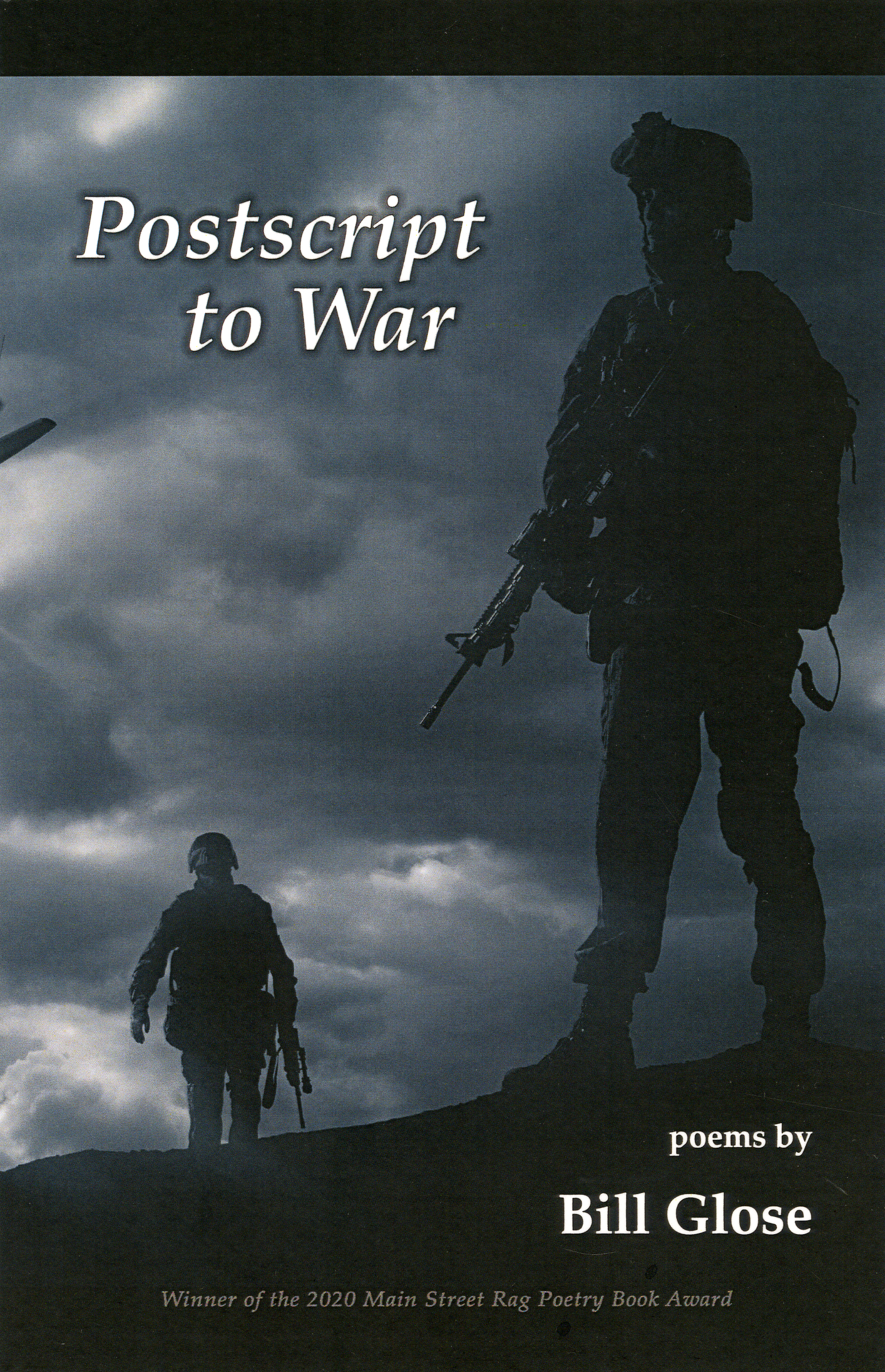Bill Glose was born into a military family, moving frequently overseas, but found home at Langley Air Force Base in Virginia. An ROTC Hokie, Bill dreamed of being a fighter pilot, but found himself jumping out of planes instead of flying them as a paratrooper and, later, a ranger with the 82nd Airborne. Active duty found him in Panama and then the Gulf Wars as a platoon commander. An engineer by training, Glose went into manufacturing as a civilian, but devoted his life to writing in 1998. From freelancing to his first contributing editor gig, Glose never stopped learning—about photography, writing, people and places.
His literary laurels include publication in The Sun, The Writer, GRIT, The Missouri Review, Rattle, and Narrative Magazine. He has earned the F. Scott Fitzgerald Short Story Award, the Main Street Rag Poetry Book Award, and the Virginia Press Association First Place Award for Sports News Writing. Further, he has won the Robert Bausch Fiction Award, the Heroes’ Voices Poetry Award, and served as the Daily Press Poet Laureate.
A prolific writer, Glose has published five books and two chapbooks of poetry, edited one short story anthology, and has directed and filmed movies about various poets. Glose is an active member of the Virginia Poetry Society, having served as festival chairman and vice president of the Eastern Region. Glose gives back to the poetry community by judging high school poetry contests and filming poetry events across the Commonwealth, which he then screens on his YouTube Poetry Channel, Virginia Poetry Online.1
With his permission, Mr. Glose offers “What the Bomb Wants” for your consideration, with discussion following.
Glose comments on his poem:
Anyone who experiences the ugliness of war can’t help but be transformed. Writing “What the Bomb Wants” was my exploration of how soldiers in war can lose their sense of self. In the chaos of combat, performing the mission is all that matters, not an individual’s concerns and desires. But a soldier following orders and acting without pause doesn’t forget the gruesome job he’s performed. And doesn’t forgive himself either.
And on poetry:
Poetry is important in our times because it allows the poet (and the reader) to explore confusing, complicated, emotionally fraught topics and ask questions without needing to provide an answer. When I came home from war, I followed the example of my father, a Vietnam veteran, and kept my combat experiences bottled inside. Angry and confrontational, I blew up at any little thing. But, then, I started writing about everything I’d seen and done in Iraq, and the relief was intense. Poetry allowed me to examine my memories and my feelings without wanting to rip someone’s head off. My poems seldom provided comfortable conclusions, but for me, pondering the tough questions was enough.2
Bill Glose embodies W.H. Auden’s expression, “Poetry is the clear expression of mixed feelings.” For that, readers may be grateful.
Footnotes
1Glose, Bill. (2022) Bill Glose Online http://www.billglose.com/bio.htm, Retrieved March 23, 2022.
2Glose, Bill (2022) in email correspondence with Nan Carmack, March 16, 2022. Richmond, VA.






